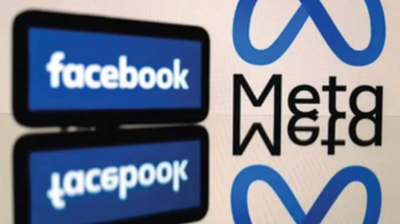Technology
Pagers in the spotlight after explosions in Lebanon: A look at why the devices are still in use
Pagers, once considered obsolete, have come under the spotlight again following a series of explosions in Lebanon.
The devices, used by Hezbollah, detonated across the country, killing at least 12 people and injuring over 3,000, according to reports.
Hezbollah has accused Israel of rigging the pagers with explosives, though no official statements from either side have confirmed this claim.
What are pagers?
Pagers, or beepers, are small, wireless communication devices that receive messages via radio frequencies.
They were inveted in 1921 but became popular in the 1980s and 1990s as a reliable means of communication.
Though their use has diminished with the rise of mobile phones, pagers are still used in some industries, such as healthcare, due to their reliability and long battery life.
There are two main types of pagers: one-way pagers, which can only receive messages, and two-way pagers, which can both send and receive messages.
Pagers provide a level of privacy and security that modern smartphones cannot match, as they do not have GPS or Bluetooth capabilities, making them less traceable.
Why are pagers still in use?
Despite the widespread use of smartphones, pagers remain crucial in certain industries.
Emergency services, hospitals, and some paramilitary groups still rely on them for their reliability, particularly in areas where mobile networks are weak or during natural disasters when cellular communication can fail.
In the Healthcare sector, pagers are still used due to their ability to function in noisy environments and avoid internet-based vulnerabilities.
Pagers also provide a higher level of privacy, which is why Hezbollah uses them for internal communications.
The devices leave a smaller digital footprint compared to mobile phones, reducing the chances of hacking or surveillance.
Hezbollah’s use of pagers and the recent explosions
In the latest incident, pagers used by Hezbollah militants across Lebanon began to heat up and explode simultaneously, causing chaos and injuries.
According to Hezbollah, this was a coordinated attack by Israeli intelligence.
The explosions have raised questions about whether the pagers were tampered with or if the cause was related to defects in their lithium batteries.
According to Hezbollah, the scale and timing of the blasts suggest a deliberate sabotage.
Why do pagers remain useful for Hezbollah?
Hezbollah, a paramilitary group, continues to use pagers because they are less traceable than mobile phones, providing a level of operational security.
The devices are simple, reliable, and can work in areas with poor mobile coverage, making them suitable for Hezbollah’s needs.
Though the group has moved away from mobile phones to avoid potential Israeli surveillance, the pager explosions indicate that even this older technology is not immune to sabotage.
There are speculations that the explosions were either the result of tampered devices or battery failure.
Gold Apollo, the brand behind the pager used in Lebanon and Syria has revealed that the the actual manufacturing of the beepers was done by a Budapest-based firm.
-

 Technology1d ago
Technology1d agoGet chronic UTIs? Future treatments may add more bacteria to your bladder to beat back harmful microbes
-

 Technology2d ago
Technology2d agoThe Gap Between Open and Closed AI Models Might Be Shrinking. Here’s Why That Matters
-

 Technology2d ago
Technology2d agoDenver Broncos on verge of giving fans faster internet as it installs Wi-Fi 6E at stadium
-

 Technology2d ago
Technology2d agoXpeng Aeroht secures 2008 pre-orders for modular flying car at Airshow China | The Express Tribune
-

 Technology3d ago
Technology3d agoAsking ChatGPT vs Googling: Can AI chatbots boost human creativity?
-

 Technology3d ago
Technology3d agoUnderstanding Retrieval-Augmented Generation (RAG): The Future of AI-Powered Information Retrieval and Response Generation
-

 Technology4d ago
Technology4d agoPakistani PhD student wins ‘Commonwealth Chemistry Award’ for research in health, wellbeing | The Express Tribune
-

 Technology4d ago
Technology4d agoCanva down: Users report major disruptions in editing, downloading images | The Express Tribune



























